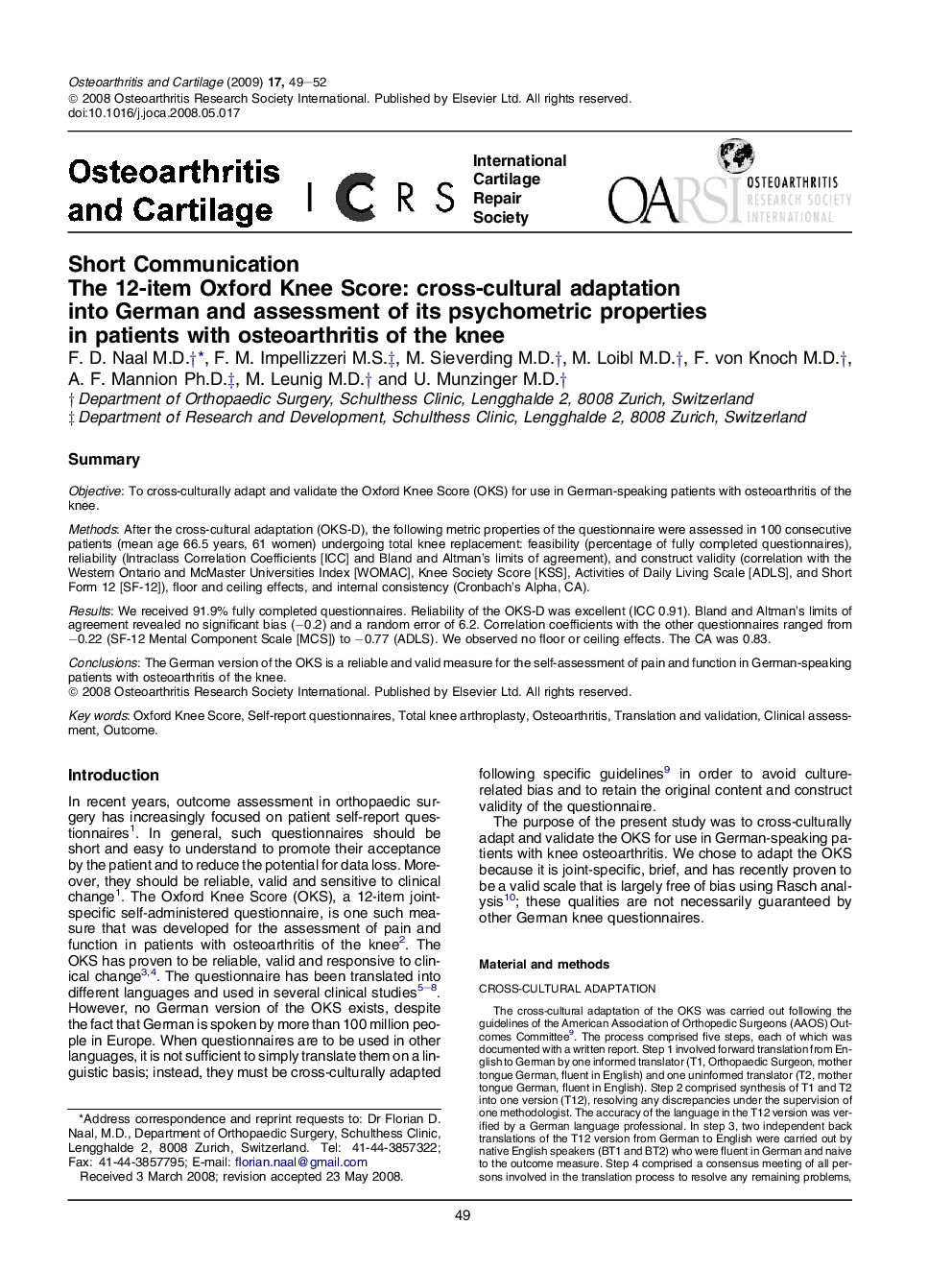| Article ID | Journal | Published Year | Pages | File Type |
|---|---|---|---|---|
| 3380900 | Osteoarthritis and Cartilage | 2009 | 4 Pages |
SummaryObjectiveTo cross-culturally adapt and validate the Oxford Knee Score (OKS) for use in German-speaking patients with osteoarthritis of the knee.MethodsAfter the cross-cultural adaptation (OKS-D), the following metric properties of the questionnaire were assessed in 100 consecutive patients (mean age 66.5 years, 61 women) undergoing total knee replacement: feasibility (percentage of fully completed questionnaires), reliability (Intraclass Correlation Coefficients [ICC] and Bland and Altman's limits of agreement), and construct validity (correlation with the Western Ontario and McMaster Universities Index [WOMAC], Knee Society Score [KSS], Activities of Daily Living Scale [ADLS], and Short Form 12 [SF-12]), floor and ceiling effects, and internal consistency (Cronbach's Alpha, CA).ResultsWe received 91.9% fully completed questionnaires. Reliability of the OKS-D was excellent (ICC 0.91). Bland and Altman's limits of agreement revealed no significant bias (−0.2) and a random error of 6.2. Correlation coefficients with the other questionnaires ranged from −0.22 (SF-12 Mental Component Scale [MCS]) to −0.77 (ADLS). We observed no floor or ceiling effects. The CA was 0.83.ConclusionsThe German version of the OKS is a reliable and valid measure for the self-assessment of pain and function in German-speaking patients with osteoarthritis of the knee.
